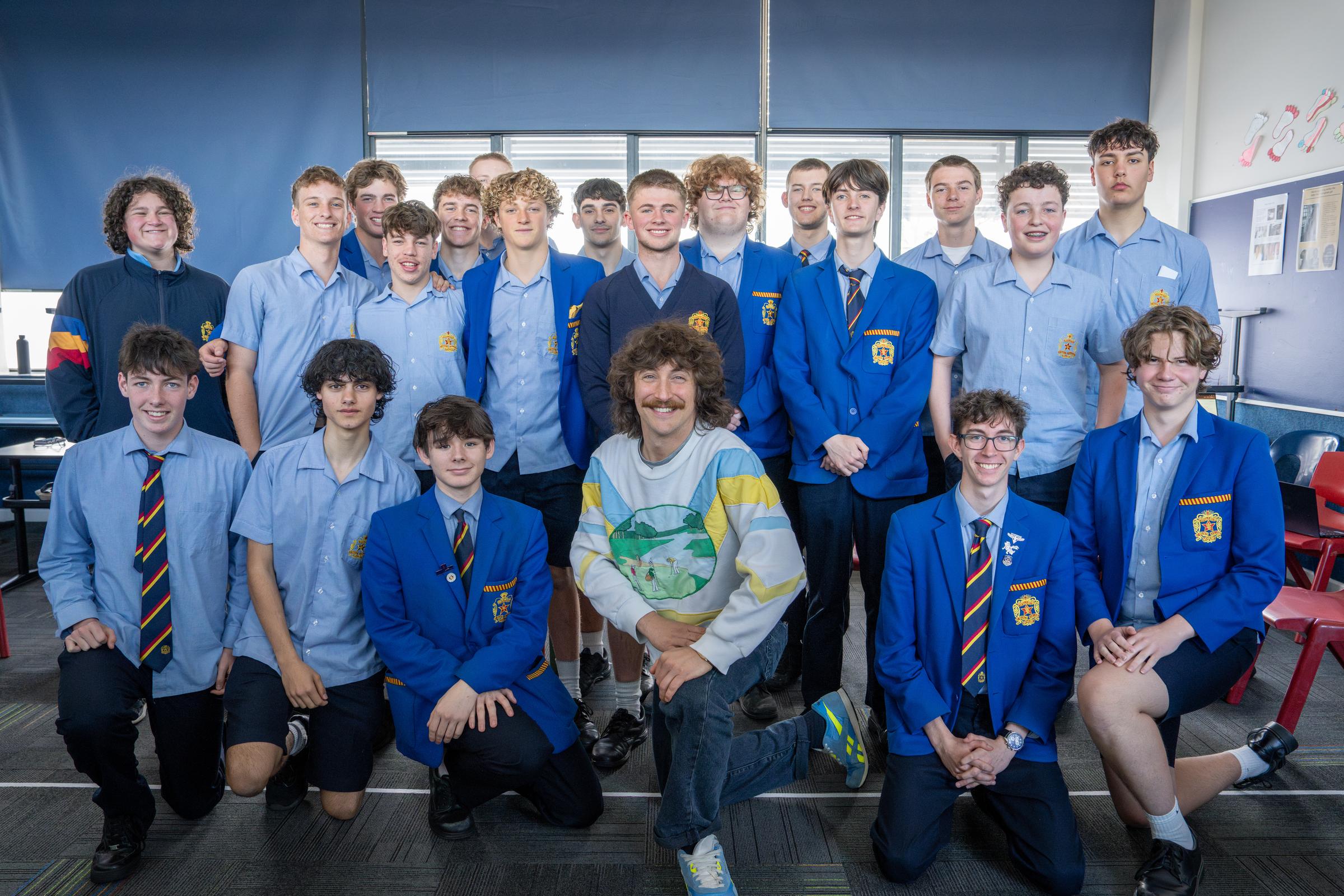Student Wellbeing

Preparing For & Managing End of School Year
As we move toward the end of another busy and rewarding school year, it’s natural for students and families to experience a mix of emotions – pride in what has been achieved, relief that holidays are near, and perhaps some anxiety about upcoming exams or stepping into a new year level ahead of Flying Start.
This time of year offers a wonderful opportunity for reflection, growth, and preparation. With the right balance of effort, self-care, and support, students can finish the year positively and confidently.
Managing End-of-Year Stress and Exams
This term, our Years 9 to 11 students will undertake exams from Week 5. Exams can bring understandable pressure, but they are also a chance to demonstrate learning and progress. A healthy amount of stress can motivate students to focus, but it’s important that it doesn’t become overwhelming.
Some key tips for students:
- Plan and prioritise: Create a study schedule that includes time for review, rest, and recreation. Set small, realistic and achievable goals each day.
- Use effective study techniques: Short, focused study blocks with regular breaks are more productive than long, unfocused hours. Also active recall, testing yourself or explaining content to someone else is far more effective than simply rereading notes.
- Look after your wellbeing: As always, good sleep, exercise, and a balanced/healthy diet are essential. Students should avoid late-night cramming as your brain performs best when it’s rested.
- Take mindful breaks: Activities such as going for a walk, prayer or reflection, breathing exercises, or listening to music can help calm the mind and reset focus.
- Reach out for support: Whether it’s a parent, teacher, or one of the College Counsellors in the Wellbeing Team, please remember that no student has to face exam stress alone. Asking for help is a sign of strength and maturity.
College Counselling
9582 5999 or counselling@stbedes.catholic.edu.au
Year Level Transitions
In the final two weeks of the term, the College moves into a two-week transition period with our Flying Start program. As our students prepare to move into a new year level, whether that’s starting VCE, entering the senior school, or beginning a new phase of their journey, change can bring both excitement and uncertainty.
Here’s how families can support their sons during this transition:
- Reflect on the year that’s been: Encourage your son to celebrate his growth and consider what has worked well and what could be improved. Reflection helps build self-awareness and resilience.
- Set new balanced, realistic and achievable goals for 2026: Academic goals are important, but so are personal ones like becoming more organised, joining new activities, or strengthening friendships.
- Stay connected: Friendships and belonging are central to wellbeing. Encourage your son to maintain positive connections with peers (even over the Christmas holidays).
- Rest and recharge: The holidays are a time for recovery. Encourage good sleep, time outdoors, and activities that restore energy and motivation.
- Keep perspective: Remind your son that each year brings new opportunities for growth and discovery.
As we conclude the 2025 academic year, we want to acknowledge the resilience, compassion, and determination shown by our students throughout the year. Every student at St Bede’s has faced their own challenges and achieved personal growth, supported by the strong sense of community and faith that defines our College.
On behalf of the Wellbeing and Counselling Team, I would like to thank our students, families, and staff for their partnership, trust, and commitment to supporting one another.
We look forward to continuing our work in over the coming months and into 2026.
Teen Mental Health Matters – Parents & Carers Webinar
It was our pleasure to co-host with Black Dog Institute this session on supporting young people through change. Families can access the recording here.
For additional support with teen mental health, please visit the Parents Hub which offers practical advice, research-informed guidance, and downloadable fact sheets.
Black Dog Institute also invites families to a wider community webinar on 12 November, 7pm which will cover:
- How to make sense of adolescence
- Identify signs of mental health struggles
- Understand how to support your teen
- Know where you and your teen can get support
The Benefits Of Counselling
What College Counselling Offers
Our service is a confidential, professional and inclusive resource for all students from Years 7 to 12, across both campuses. College Counselling is tailored to each specific student and can be offered one-on-one or in a group context.
Support can also last from a ‘one-off’ session to weekly/ongoing appointments.It is designed to provide support for a range of issues, including but not limited to:
- Managing stress and academic pressures
- Building self-esteem and resilience
- Navigating friendships and social dynamics
- Coping with family changes or personal challenges
- Addressing feelings of anxiety or sadness, and many more
How Students Can Access Counselling
- Self-referring to the Wellbeing Coordinator counselling@stbedes.catholic.edu.au
- Drop-in to our Wellbeing Office at our Mentone Campus (near the Chapel gardens)
- Requesting a referral from their Homeroom/Tutor Group teacher, Year Level/House Coordinator on their behalf
- Requesting a referral from their Parent/Guardian on their behalf (either via counselling@stbedes.catholic.edu.au or 9582 5999)
How Families Can Support
As parents and guardians, your role in your child’s wellbeing is invaluable. Some ways you can assist your child include:
- Helping them establish a balanced routine that includes time for study, relaxation, and hobbies
- Encouraging healthy sleep habits and a nutritious diet to support their overall wellbeing
- Being attentive to changes in their behaviour or mood, and gently ask how they are feeling if and when you notice any changes
- Promoting positive self-talk and help them set realistic goals for themselves
- Modelling healthy coping strategies, such as managing stress or problem-solving constructively
- Celebrating their achievements, no matter how small, to boost their confidence
- Encouraging open conversations about their feelings and experiences – but accept and understand if and when they may not want to open up to you (if this is the case encourage them to seek help elsewhere)
- Encouraging and reassuring them that seeking support is a sign of strength, not weakness
- Staying informed about the services and resources the school offers
The Common Ground Parent Sessions
The Parent and Carer sessions for The Common Ground are available for you to view online at your convenience via the links below
The Common Ground: Future Fit Masculinities - Years 10 to 12
The Common Ground: Future Fit Masculinities- Years 7 to 9
We appreciate every family collaboration and commitment with our College to support our students to do their personal best.
